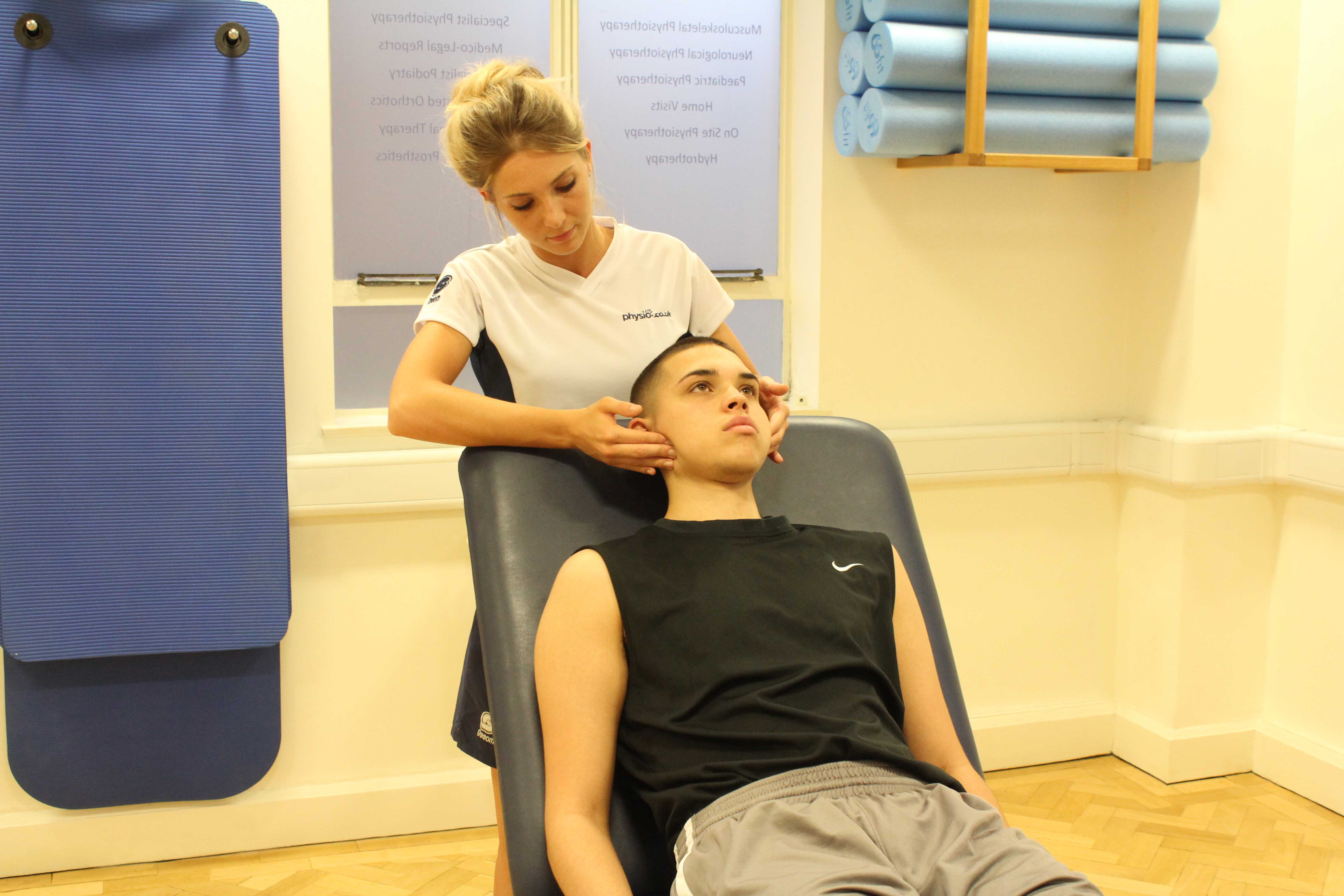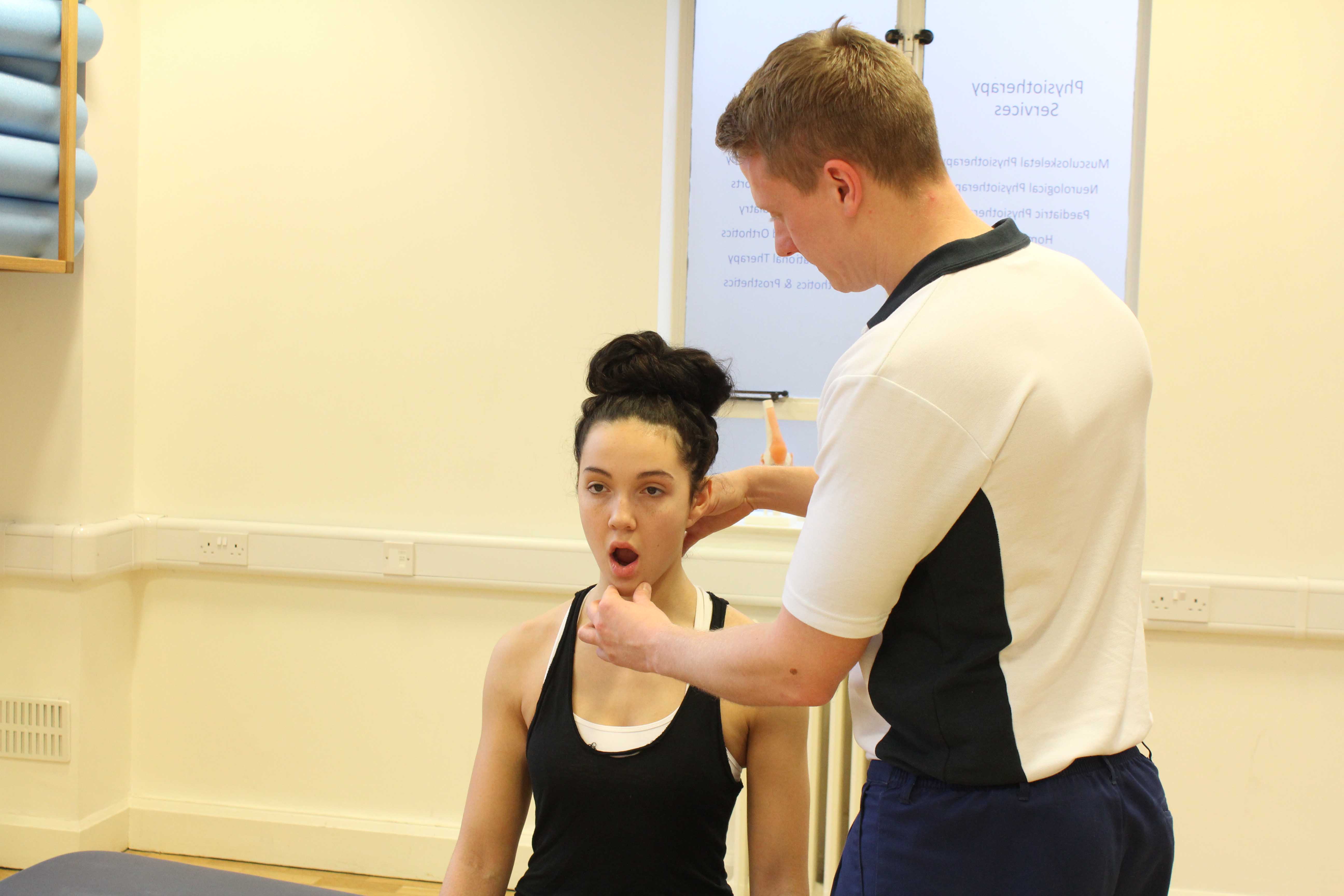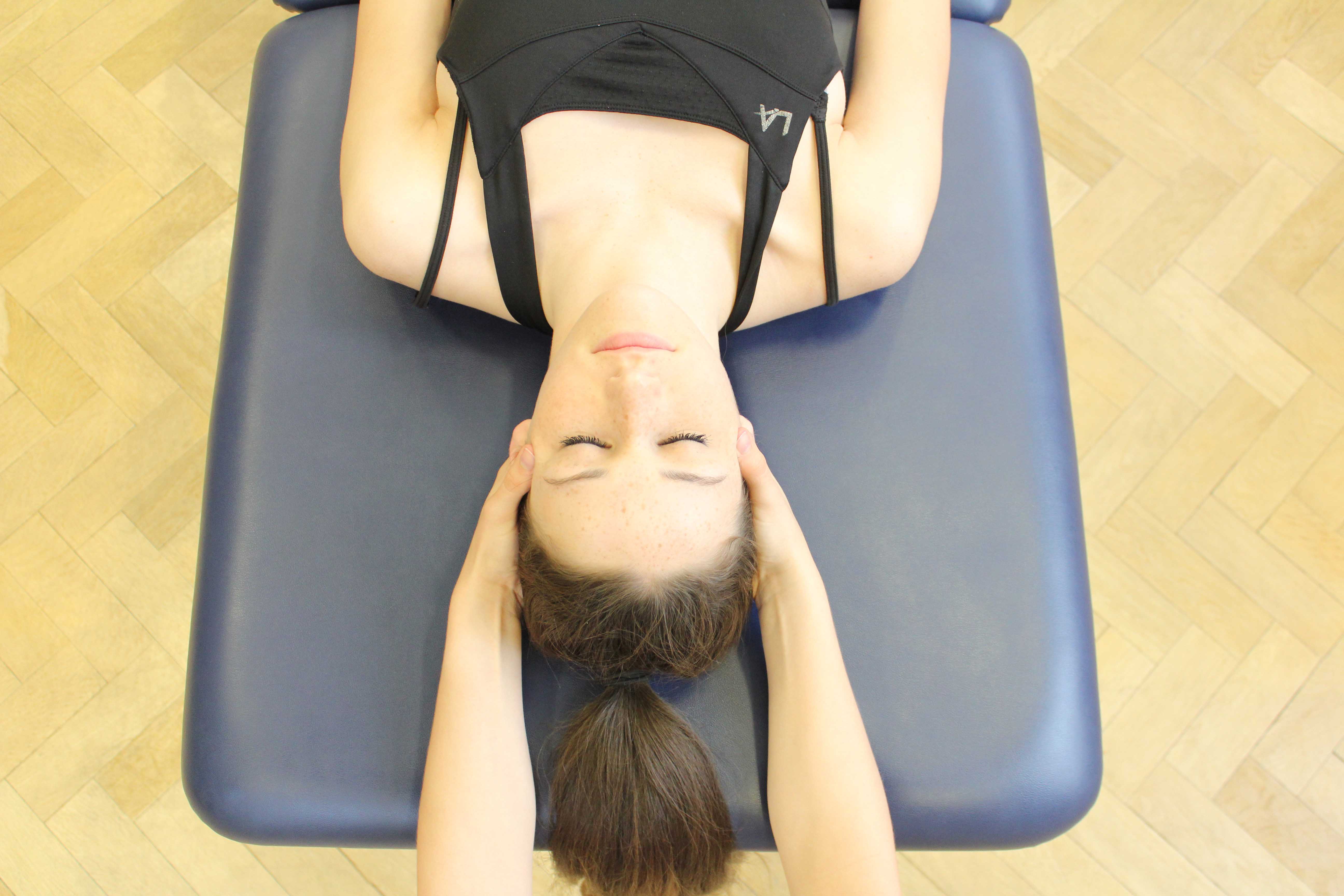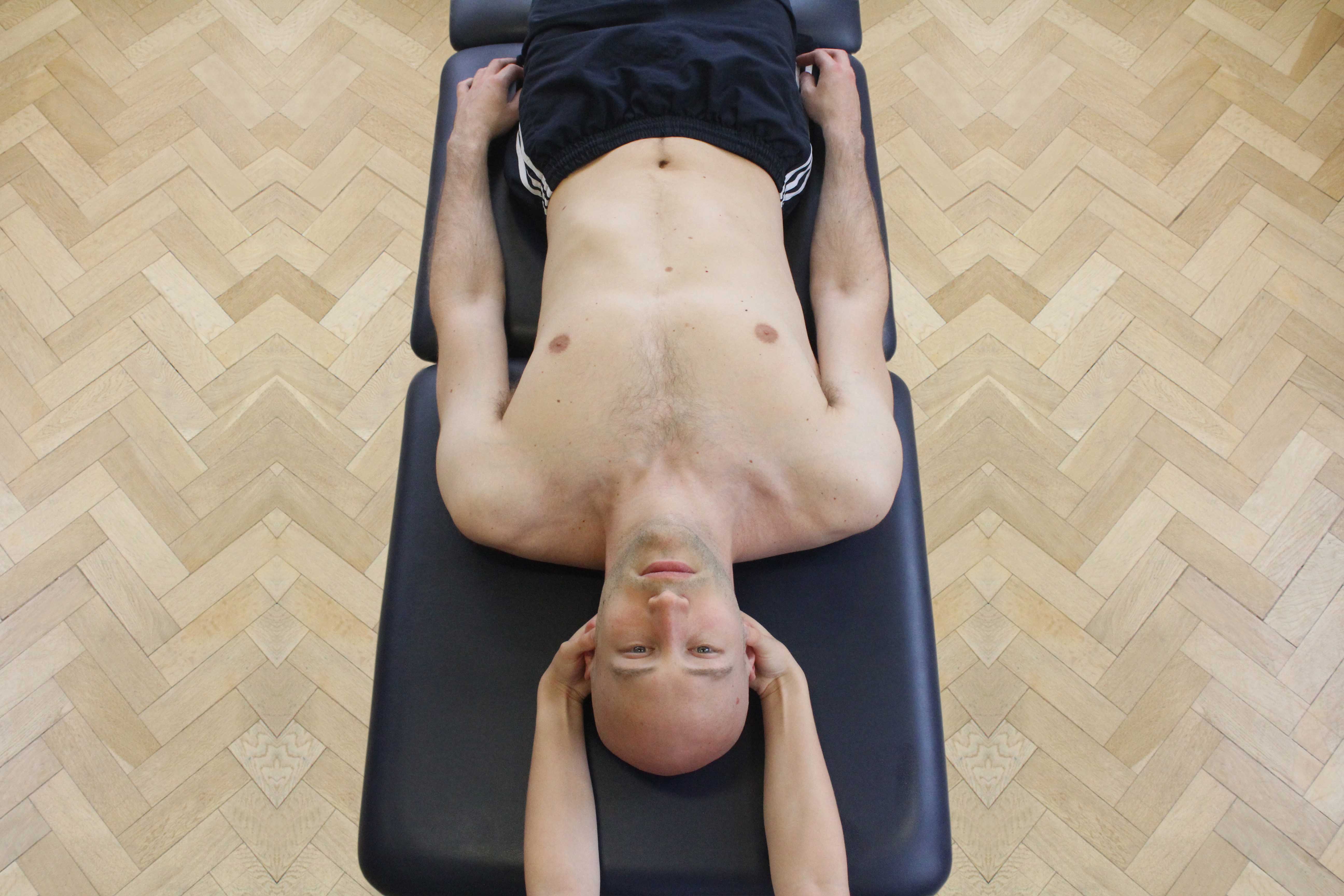What is TMJ dysfunction?
TMJ dysfunction is inflammation of the TMJ, which connects the jaw to the skull. This can cause pain and reduced function. The TMJ is a complex joint and can be affected by several problems.
 Above: Massage and realignment of the temporomandibular joint
Above: Massage and realignment of the temporomandibular jointWhat causes TMJ dysfunction?
There is usually more than one factor causing TMJ dysfunction. Causes of TMJ dysfunction can include:
- Cross bite
- Posture
- Stress/nervous habits
- Clenching/grinding of teeth
- Trauma e.g. road traffic accident
- Muscles imbalances
- Osteoarthritis
- Rheumatoid arthritis
 Above: Massage and realignment of the temporomandibular joint by experienced physiotherapist
Above: Massage and realignment of the temporomandibular joint by experienced physiotherapistWhat are the symptoms of TMJ dysfunction?
Symptoms of TMJ dysfunction can include:
- Clicking, locking or popping of the jaw
- Restricted opening of the jaw
- Severe, recurring headaches
- Pain in the ears, temples or neck
- Occasional hearing loss
- Dizziness or ringing of the ears
- Neck pain or stiffness
- Sensitive teeth
 Above: Soft tissue massage and mobilisation of the jaw to relieve stiffness and pain
Above: Soft tissue massage and mobilisation of the jaw to relieve stiffness and painPhysiotherapy for TMJ dysfunction
At Physio.co.uk we have experienced physiotherapists who are experienced at assessing and treating TMJ dysfunction. Physiotherapy will reduce pain, restore range of movement and return you to functional activities such as eating. Your physiotherapist will assess you and then start a treatment programme which may include the following treatments:
- Range of movement exercises
- Strengthening exercises
- Electrotherapy such as ultrasound or TENS
- Manipulations
- Ergonomic changes and advice
- Acupuncture
- Stress management
Can TMJ dysfunction cause any long-term effects?
In the majority of cases the problem can be resolved. In some cases, such as when the cause is arthritis, there may be long term effects. However your physiotherapist can reduce the symptoms and teach you how to manage the condition in the long term.
 Above: Massage and mobilisations of the jaw to releive stiffness and aching
Above: Massage and mobilisations of the jaw to releive stiffness and achingTo arrange an assessment with Physio.co.uk please contact us or call 0330 088 7800.

 0330 088 7800
0330 088 7800

































